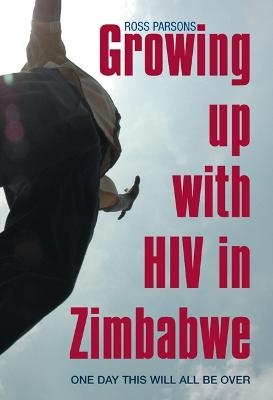
Growing up with HIV in Zimbabwe
One day this will all be over
Seiten
2021
James Currey (Verlag)
978-1-84701-073-5 (ISBN)
James Currey (Verlag)
978-1-84701-073-5 (ISBN)
Psychotherapy and ethnography are jointly employed to produce an account of HIV-positive children's lives (and deaths) in Zimbabwe that is sensitive to emotions and their social contexts.
The study explores the lives of children growing up HIV-positive in the eastern Zimbabwean town of Mutare at a time of severe crisis in the state, marked by impoverishment, organized violence and mass death. This ethnography grewout of a psychotherapeutic engagement with a group of children living with HIV.
The study examines children's experiences through the institutional domains of family and kin, clinics and other forms of healing, churches and religious practices, and experiences of dying and bereavement. Against patrilineal norms, much daily caring occurs in mothers' families. Clinics continue to offer partial western medical care despite daunting resource constraints. Western medicine sits on older templates of 'traditional' and 'spiritual' healing. Anti-retrovirals and other basic medicines are available but may exacerbate domestic discord and fail to meet more obvious physical symptoms. Children and their families appear to prefer spiritual alternatives to medical care, perhaps partly as a result of the severe limitations placed on the latter. A wide variety of religious practices, primarily Christian in a plethora of forms, flourish in the context. Dying may come to be seen by children as preferable to continued struggle against severe adversity. Child deaths are deeply imbued with religious practice and given voice through religious idioms.
Ross Parsons has extensive experience as a psychotherapist, a writer and a social researcher. He lives in Mutare and teaches anthropology and psychology at Africa University.
Weaver Press: Zimbabwe and Southern Africa (South Africa, Botswana, Lesotho, Swaziland and Namibia)
The study explores the lives of children growing up HIV-positive in the eastern Zimbabwean town of Mutare at a time of severe crisis in the state, marked by impoverishment, organized violence and mass death. This ethnography grewout of a psychotherapeutic engagement with a group of children living with HIV.
The study examines children's experiences through the institutional domains of family and kin, clinics and other forms of healing, churches and religious practices, and experiences of dying and bereavement. Against patrilineal norms, much daily caring occurs in mothers' families. Clinics continue to offer partial western medical care despite daunting resource constraints. Western medicine sits on older templates of 'traditional' and 'spiritual' healing. Anti-retrovirals and other basic medicines are available but may exacerbate domestic discord and fail to meet more obvious physical symptoms. Children and their families appear to prefer spiritual alternatives to medical care, perhaps partly as a result of the severe limitations placed on the latter. A wide variety of religious practices, primarily Christian in a plethora of forms, flourish in the context. Dying may come to be seen by children as preferable to continued struggle against severe adversity. Child deaths are deeply imbued with religious practice and given voice through religious idioms.
Ross Parsons has extensive experience as a psychotherapist, a writer and a social researcher. He lives in Mutare and teaches anthropology and psychology at Africa University.
Weaver Press: Zimbabwe and Southern Africa (South Africa, Botswana, Lesotho, Swaziland and Namibia)
Ross Parsons has extensive experience as a psychotherapist, a writer and a social researcher. He lives in Mutare and teaches anthropology and psychology at Africa University.
Introduction: growing up with HIV in urban, eastern Zimbabwe
In this vale of tears: an ethnography of suffering and sorrow
Who cares? Family, kin and other forms of caring
Visible secrets: illnesses, exposure and disclosure
If I had faith: churches, spirits and healing
One day this will all be over: dying, death and grief
The heart remains: an epilogue
| Erscheinungsdatum | 04.10.2018 |
|---|---|
| Zusatzinfo | 7 b/w illus. |
| Verlagsort | Oxford |
| Sprache | englisch |
| Maße | 145 x 210 mm |
| Themenwelt | Medizin / Pharmazie ► Medizinische Fachgebiete |
| Sozialwissenschaften ► Soziologie ► Mikrosoziologie | |
| ISBN-10 | 1-84701-073-3 / 1847010733 |
| ISBN-13 | 978-1-84701-073-5 / 9781847010735 |
| Zustand | Neuware |
| Haben Sie eine Frage zum Produkt? |
Mehr entdecken
aus dem Bereich
aus dem Bereich
Eine Einführung in Theorien, Konzepte und ausgewählte …
Buch | Softcover (2024)
Springer Fachmedien Wiesbaden GmbH (Verlag)
CHF 48,95


